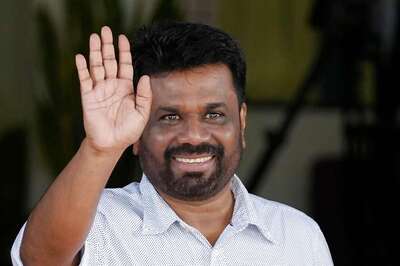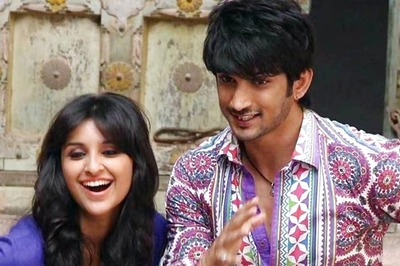
views
There is a popular story about the renowned Hindi novelist Fanishwar Nath Renu which depicts the inter-personal relationship of trust between even the staunchest opponents in elections.
In one of the Assembly elections, Renu was a socialist candidate from a constituency in Seemanchal, Bihar. His opponent was Saryu Mishra from the Congress party. According to the socio-political vocabulary, Renu belonged to the EBC category whereas Mishra was a Brahmin who was widely known as ‘Maulawi Saryu’ due to his popularity among the Muslims in the constituency.
Once during his election campaign, Renu discovered that his firm opponent was stuck on his way to a village as his vehicle had broken down. He not only offered his Jeep to Mishra but also suggested him to cover the neighbouring communities among who there was a lot of discontent.
It is important to add here that from the several letters exchanged between the two it is clear that despite the political differences, they were committed to maintaining good personal relations. There are several instances of political opposition and personal cooperation between the two.
There is no dearth of such examples from the early history of Independent India. Initially, elections in Indian democracy were not destructive of good old social relations.
One would like to remember the relation between Acharya JB Kripalani and Sucheta Kripalani; maintaining the relationship of husband and wife while representing two different political parties and being staunchly opposed to each other.
One of the best examples of ethical politics was Vajpayee-Nehru relationship. Vajpayee used to critique Nehru quite often. Once he said, “I know that Panditji practices shirshasana and is welcome to continue doing so, but this does not mean that he should look at issues with an inverted vision.”
He even attacked Nehru by saying that he had a dual personality combining Churchill and Chamberlin. Nehru instead of getting angry complemented him for a persuasive speech. On another occasion, same Vajpayee defended Nehru when he was being attacked by the opposition in a parliamentary debate.
Similarly, on several occasions, Indira Gandhi consulted Vajpayee despite her professed ideological opposition to him. After India’s spectacular victory in the 1971 war, Vajpayee stood in Parliament and compared Indira Gandhi to the goddess Durga.
However, in recent decades, things have changed drastically in India. The language of politics has reached lowest of the lows. We have abandoned the political culture that emerged during the anti-colonial struggle in the first decades of democracy in India.
In this so-called ‘New India’, we are told that political opponents are nothing but your enemies. One of the senior leaders and a minister has declared that ‘if Muslims do not vote for me, I will not do anything for them’. What a tragedy of democracy! It seems the word ‘ethics’ has vanished from the language of politics.
Instead of debating issues in the public speeches, the leaders of today call each other names, they try to drag the personal weaknesses of each other out in the public.
Mahatma Gandhi was right to critique the parliamentary form of democracy. He could visualise how ‘ethics’ might be sacrificed to achieve political victory.
In the absence of ethics, politics becomes as terrible as cancer. Like cancer, it is a painful disease, and the response from a doctor is always in terms of time, i.e., few weeks, few months or a few years more. The imagination is full of death signs with no hope of ever getting cured.
Politics without ethics is dangerous for Indian democracy as it is producing distrust at all levels. The examples of the relationship between Renu and Mishra or Nehru and Vajpayee have become quite a rarity today.
This decline of ethics will have enormous consequences for inter-community relations and the everyday life of ordinary Indians. This new kind of political culture will keep spreading hatred even after elections are over.
Why is there such a decline in ethics? Probably, in this market model of democracy, it is inevitable. Mainly when the market model of democracy is mediated by the media, there is a tendency to capture the imagination of the people by creating a spectacle. As a consequence the political class is forced to innovate catchy slogans to ensure constant media attention.
In this process, political leaders forget that though they might be subjects of attention during elections, they leave behind a toxic residue of hatred long after elections are over.
The author is an assistant professor, JNU, who teaches in the Centre for Political Studies, and is a member of ‘Democracy4You’.




















Comments
0 comment